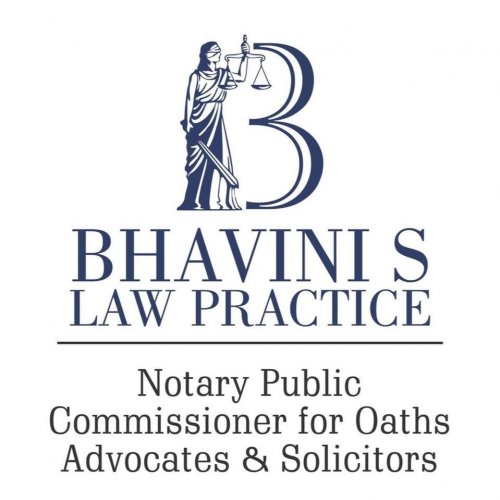Best Citizenship Lawyers in Tanjong Pagar
Share your needs with us, get contacted by law firms.
Free. Takes 2 min.
List of the best lawyers in Tanjong Pagar, Singapore
About Citizenship Law in Tanjong Pagar, Singapore
Under the Singaporean law, citizenship can be acquired via birth, descent, marriage, or by naturalization. While Tanjong Pagar falls under the overall jurisdiction of Singapore, the citizenship laws applicable are the same as for the rest of the country. As such, all eligibility requirements and legal processes in place are overseen and implemented by the Immigration & Checkpoints Authority (ICA) of Singapore.
Why You May Need a Lawyer
The process of attaining citizenship in Singapore can be complex and intricate. From the preliminary stages of putting together all required documentation to navigating through the application procedure, guidance from a qualified lawyer can prove invaluable. Furthermore, specific cases like citizenship by descent or citizenship acquired through marriage often include unique legal circumstances which require thorough understanding of local laws. A lawyer can also assist in potentially contentious situations such as revocation of citizenship.
Local Laws Overview
The Singaporean constitution outlines the country's basic citizenship laws, all of which apply to Tanjong Pagar. Singapore doesn't recognize dual citizenship, hence one has to renounce their original citizenship before becoming a Singaporean citizen. The requirements to obtain citizenship differ based on the path to citizenship; through marriage, through descent, by birth, or through naturalization. It is crucial to familiarize oneself with these laws and work in compliance with them while considering and applying for Singaporean citizenship.
Frequently Asked Questions
Q1: What are the paths to acquiring Singaporean citizenship?
The four paths to acquiring citizenship are: citizenship by birth, citizenship by descent, citizenship by marriage, and citizenship by naturalization.
Q2: Does Singapore allow dual citizenship?
No, dual citizenship is not recognized in Singapore. Before acquiring Singaporean citizenship, you would have to renounce your original citizenship.
Q3: What are the benefits of acquiring Singaporean citizenship?
As a citizen, you enjoy a wide range of benefits including healthcare subsidies, higher priority for public education and access to specific jobs among other perks.
Q4: Is it possible for my citizenship to be revoked?
Yes, under certain circumstances, such as acquiring the citizenship fraudulently, the state can initiate the process of revocation.
Q5: Do I need to serve National Service if I acquire citizenship?
Male Singapore citizens, including those who have acquired citizenship by registration, are obligated to enroll for National Service and serve for two years.
Additional Resources
For accurate and up-to-date information, it's recommended to refer to the website of the Immigration & Checkpoints Authority (ICA) of Singapore. Additionally, the Legal Aid Bureau under the Ministry of Law offers significant legal advice and assistance.
Next Steps
If you require legal assistance, start by searching for an accredited immigration lawyer who is well-versed in Singapore's citizenship law. It is also beneficial to compile all necessary documents and familiarize yourself with the citizenship process to ensure smooth proceedings. Prioritize understanding your individual situation clearly and ensure to ask your lawyer any pertinent questions, for a successful citizenship application.
Lawzana helps you find the best lawyers and law firms in Tanjong Pagar through a curated and pre-screened list of qualified legal professionals. Our platform offers rankings and detailed profiles of attorneys and law firms, allowing you to compare based on practice areas, including Citizenship, experience, and client feedback.
Each profile includes a description of the firm's areas of practice, client reviews, team members and partners, year of establishment, spoken languages, office locations, contact information, social media presence, and any published articles or resources. Most firms on our platform speak English and are experienced in both local and international legal matters.
Get a quote from top-rated law firms in Tanjong Pagar, Singapore — quickly, securely, and without unnecessary hassle.
Disclaimer:
The information provided on this page is for general informational purposes only and does not constitute legal advice. While we strive to ensure the accuracy and relevance of the content, legal information may change over time, and interpretations of the law can vary. You should always consult with a qualified legal professional for advice specific to your situation.
We disclaim all liability for actions taken or not taken based on the content of this page. If you believe any information is incorrect or outdated, please contact us, and we will review and update it where appropriate.








